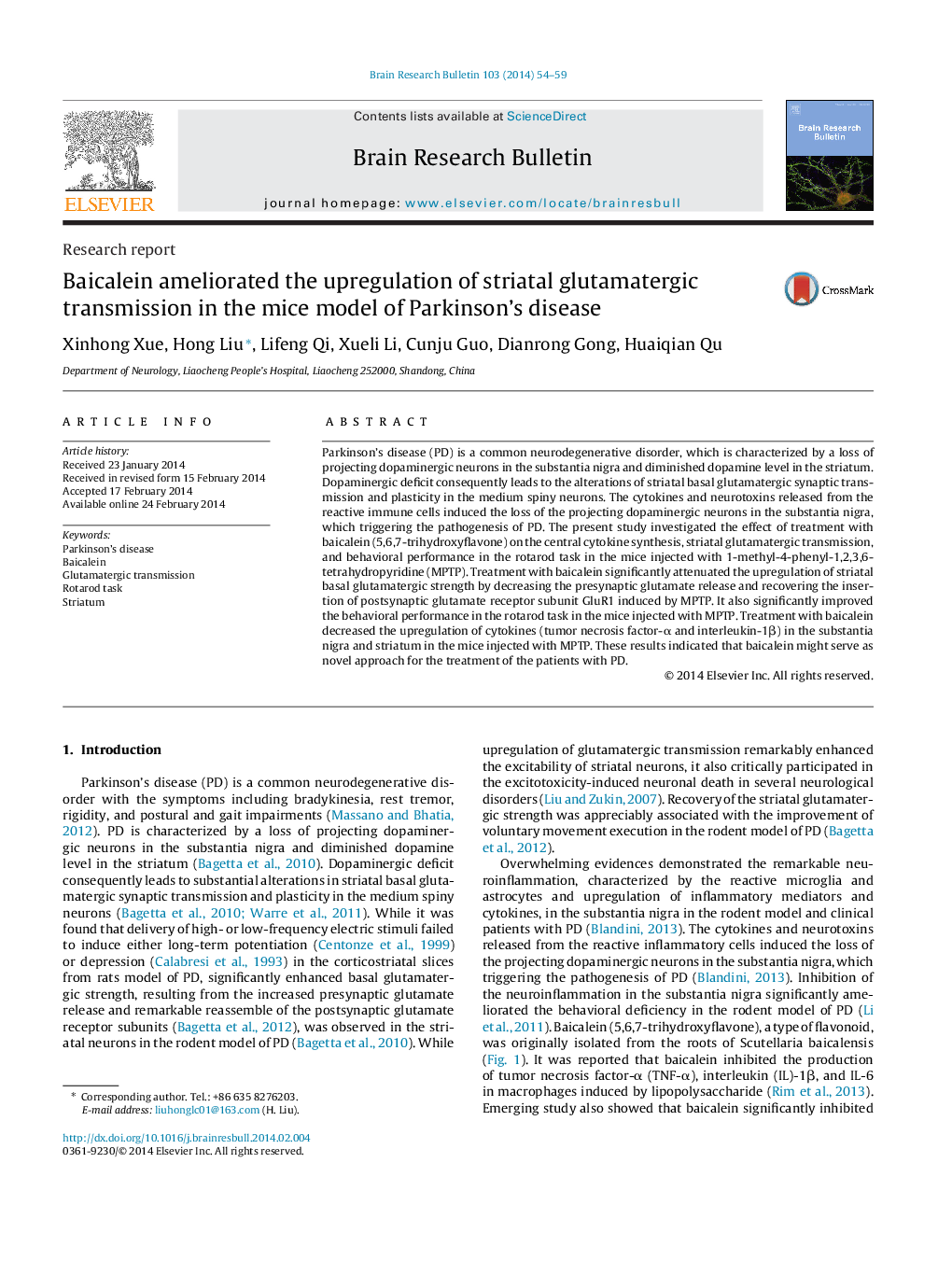| Article ID | Journal | Published Year | Pages | File Type |
|---|---|---|---|---|
| 4318837 | Brain Research Bulletin | 2014 | 6 Pages |
•Baicalein attenuated the upregulation of striatal glutamate transmission.•Baicalein attenuated the striatal cytokine synthesis in the PD mice.•Baicalein improved the motor balance in the PD mice.
Parkinson's disease (PD) is a common neurodegenerative disorder, which is characterized by a loss of projecting dopaminergic neurons in the substantia nigra and diminished dopamine level in the striatum. Dopaminergic deficit consequently leads to the alterations of striatal basal glutamatergic synaptic transmission and plasticity in the medium spiny neurons. The cytokines and neurotoxins released from the reactive immune cells induced the loss of the projecting dopaminergic neurons in the substantia nigra, which triggering the pathogenesis of PD. The present study investigated the effect of treatment with baicalein (5,6,7-trihydroxyflavone) on the central cytokine synthesis, striatal glutamatergic transmission, and behavioral performance in the rotarod task in the mice injected with 1-methyl-4-phenyl-1,2,3,6-tetrahydropyridine (MPTP). Treatment with baicalein significantly attenuated the upregulation of striatal basal glutamatergic strength by decreasing the presynaptic glutamate release and recovering the insertion of postsynaptic glutamate receptor subunit GluR1 induced by MPTP. It also significantly improved the behavioral performance in the rotarod task in the mice injected with MPTP. Treatment with baicalein decreased the upregulation of cytokines (tumor necrosis factor-α and interleukin-1β) in the substantia nigra and striatum in the mice injected with MPTP. These results indicated that baicalein might serve as novel approach for the treatment of the patients with PD.
